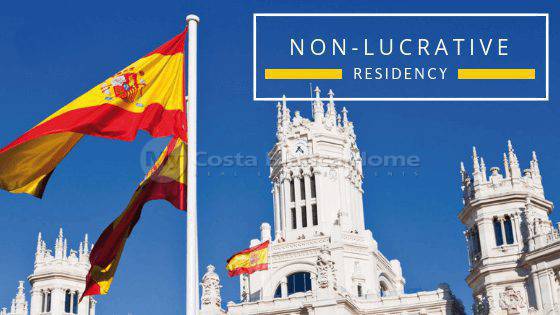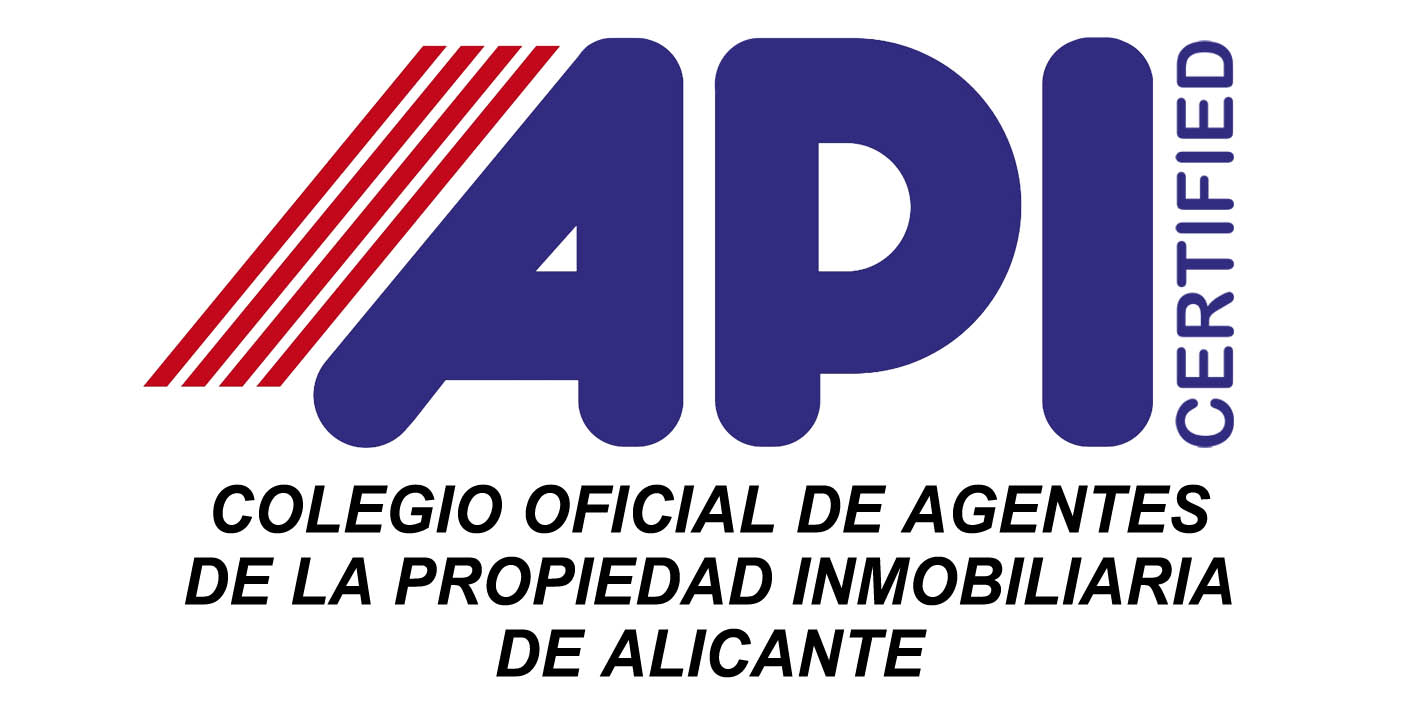I’m from the UK: How do I get a non-lucrative residence visa for Spain?

After the official Brexit departure on 01 January 2021, British citizens who wish to obtain legal residence in Spain must go through a different process, as the Legal Regime for Foreigners will now apply to them. In order for British citizens to obtain Spanish residency, they will be able to apply for a variety of visas, one of which is the non-lucrative residence visa. This visa, along with others, will continue to be valid until a new mobility scheme is negotiated by the UK and EU.
For any British expatriates who have been residing in Spain before the 31st of December 2020, but do not have a Union Citizen Registration Certificate or TIE Card, you may continue to reside in Spain as long as proof of residence before the official Brexit date can be provided. Due to requirements made in the Withdrawal Agreement, it is recommended that you apply for a TIE Card.
What is the Spanish non-lucrative residence visa?
The non-lucrative residence visa can be applied for by non-EU citizens who wish to reside in Spain for more than 6 months, without carrying out any work or professional activity in the country. Any British expatriates who have the TIE Card do not need this visa, as they are already granted free movement and residence under the Withdrawal Agreement.
This visa grants temporary residence, of which the holder can reside in Spain up to a year from their date of entry. Once this period is over, holders have the option to renew this visa; each renewal will last up to two years. The third renewal of this visa (5 years) will grant the holder permanent or long-term residence.
The conditions of this visa mean that it is usually designed for the following people:
- UK citizens who are retiring and would like to live in Spain
- Foreign citizens who have sufficient economic means to live in Spain without having to work
Why should I choose the Spanish non-lucrative residence visa?
- Work remotely from Spain: Work remotely for any clients or company abroad.
- Apply for a family or joint visa: Include your spouse and other family members.
- Potential to invest: Invest in a property to use for rental purposes.
- Free movement: Holders can travel freely within the Schengen Area.
As a British person, what are the requirements for a non-lucrative residence visa in Spain?
British citizens who wish to apply for the non-lucrative residence visa must meet the following requirements:
- Have a UK residence permit
- Passport with at least one year validity before its expiry date
- No criminal record in both the UK and Spain
- Have proof of sufficient economic means
- No position in an unusual situation within Spanish territory
- For the joint visa, spouses, ancestors and descendants can be included. Children can be applied for by the parent if they are under the age of 21, a student or a dependent.
What exactly is the Spanish non-lucrative residence visa application procedure?
1. Apply at a Spanish consulate in the UK
The application for the non-lucrative residence visa must be presented at the nearest Consulate General of Spain in the UK. You can find your assigned consulate district here.
This application must be presented personally by the individual who wants to obtain the visa. Any applicants made on the behalf of minors can be presented by a parent, guardian or duly accredited representative (the latter is only approved in extreme cases).
Documentation required for your non-lucrative residence visa application
- National Visa form and EX01 form must be completed.
- Valid passport or travel document recognised as valid in Spain.
- Payment of the visa application process.
- Certificate proving no criminal record duly legalised or apostilled, valid for 3 months.
- Possession of public or private health insurance arranged with an insurance company that is authorised to operate in Spain. You must have total coverage; no shortages or co-payments.
- Medical certificate complying with the International Health Regulations – this must be issued at least 3 months before the submission of your visa application.
- Completion of Form 720-052 with fee payment, for initial temporary residence authorisation.
- Accreditation of sufficient economic means to cover the expenses of your stay for one year.
-- Throughout 2021, for monthly support, you must prove that you have €27,115.20 in your account, or that you receive a minimum monthly income of €2,259.60. For each dependent, you must provide a further 6,778,80 euros per year or €564.90 per month.
-- Official documents required to prove your sufficient economic means include payslips, state or government pension, pension scheme, or possession of any assets that guarantee your income.
- A mandatory interview will be held at the consulate office, which will go towards the decision on the visa
All official documents must be legalised through your consulate representative, or with the Hague Apostille.
2. Waiting for your response from the consulate
After receiving your non-lucrative residence visa application, the consulate has one month to either approve or deny your application. If approved, you have one month from the date of your notified approval to personally collect your permit from the consulate. Your NIE will also be handed to you along with the visa.
If you do not hear from the consulate within one month of your application, your application is likely to have been rejected.
3. Arriving in Spain
Non-lucrative residence visa holders must arrive in Spain within 3 months from the date of their visa grant.
Once holders have entered Spain, you have one month from your date of entry to visit the Foreigners’ Office to apply for your Foreigners’ Identity Card (TIE), as well as completing registration at the town hall corresponding to the municipality where you are residing in Spain.
What are the tax implications for obtaining the non-lucrative residence visa in Spain?
As mentioned previously, the conditions of the non-lucrative residence visa is that holders must reside in Spain for at least 6 months (183 days) of the year. This makes the holders tax residents, and so will be taxed on their worldwide income (the double taxation agreement between the UK and Spain will apply here).
Listed below are some of the tax implications for non-lucrative residence visa holders:
- Personal Income Tax (IRPF) – Model 100
Your worldwide income will be taxed in Spain using Model 100 of IRPF. This means that any income from abroad will be subject to taxation. The double taxation agreement will be applied to you, to avoid double taxation.
- Wealth Tax – Form 714
Any global assets and economic rights must be declared through Form 714 for Wealth Tax. This must be declared in either of the following situations; when your tax amount has been paid, or, when the value of your assets exceeds two million euros.
- Assets Declaration – Form 720
You must complete Form 720 to declare any overseas assets and rights that exceed €50,000. Failure to do so may result in the Spanish Tax Agency using your data to prove your tax residency status, which will lead to taxation and further penalties.
Will I be able to transfer from a Non-Lucrative Residence Visa to a Spanish Golden Visa?
According to article 66 of Law 14/2013, holders of the investment visa can apply for the Golden Visa, as well as those permitted residency regularly in Spain, for example, through the Non-Lucrative Residence Visa or a short-term stay. They would be able to apply for the visa of investors, i.e. the Golden Visa, without the need to apply in their country of origin. Instead, the matter will be left for the discretion and study of the competent administrative body.
Can investments made under a Non-Lucrative Residence Visa be put toward the investment for a future Spanish Golden Visa?
Any property purchases in Spain will count towards your investment if you wish to apply for a future Spanish Golden Visa. To qualify for the Golden Visa, you will need a minimum of €500,000, and all investments must have been made after 28 September 2013.
* This article has been written by a third party not owned or controlled by My Costa Blanca Home.
My Costa Blanca Home disclaims any responsibility or liability related to your access to or use of any third party content.










